Ruth pulled all her hair out, like 100,000 other under-35s
- Published
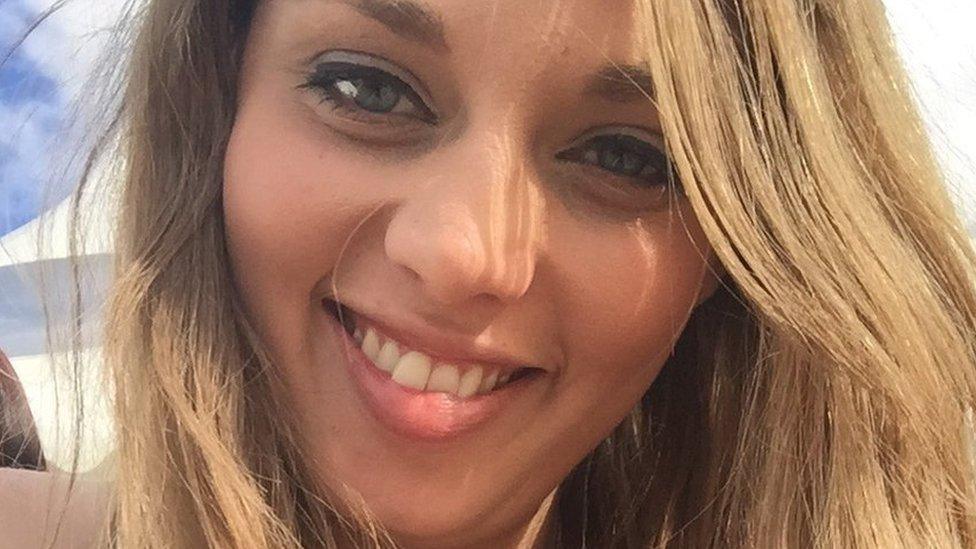
Pulling out hair from your head, eyebrows or eyelashes is obviously painful and leaves bald patches.
But it's a condition which is thought to affect more than 100,000 under-35s in the UK.
It can be caused by anxiety and, as part of a campaign called No Pulling Week, external, people are being encouraged to get help for trichotillomania (TTM).
Ruth Walters, 24, from Leicestershire, has suffered from the condition since she was a teenager.
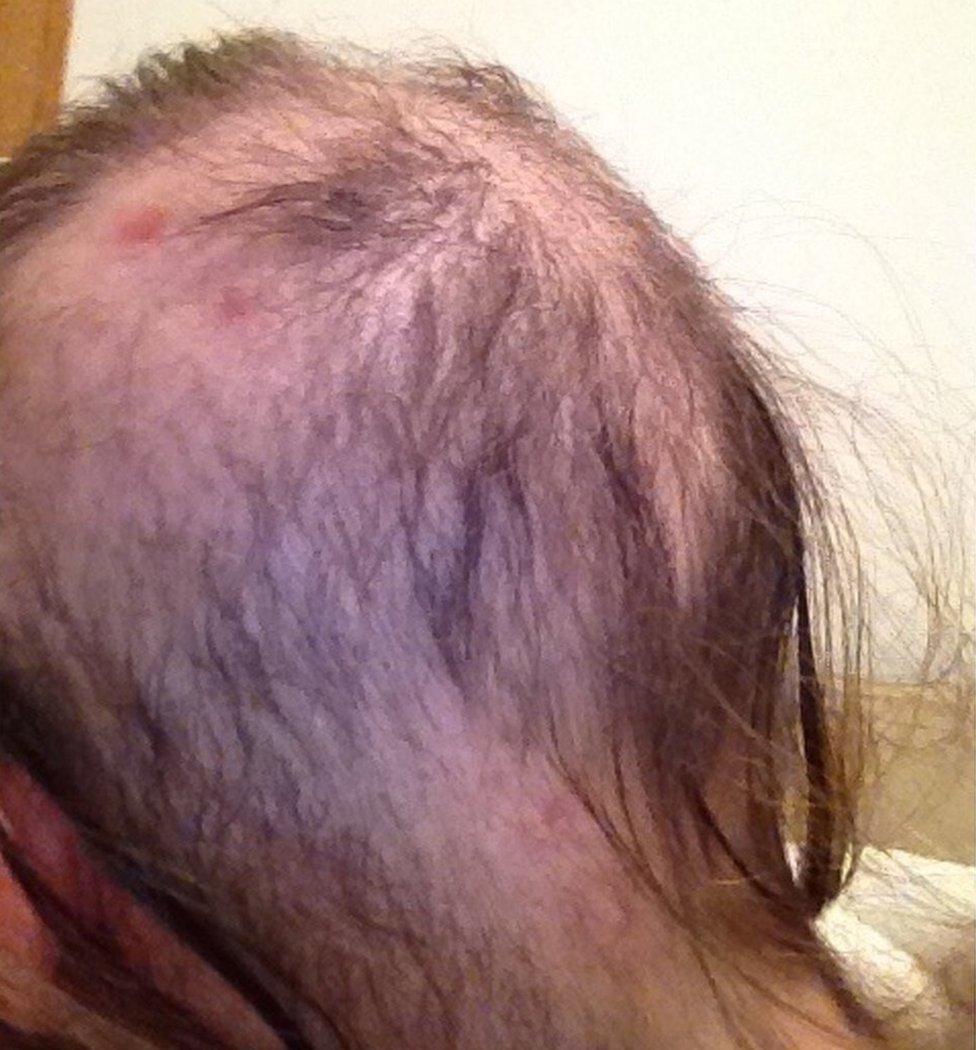
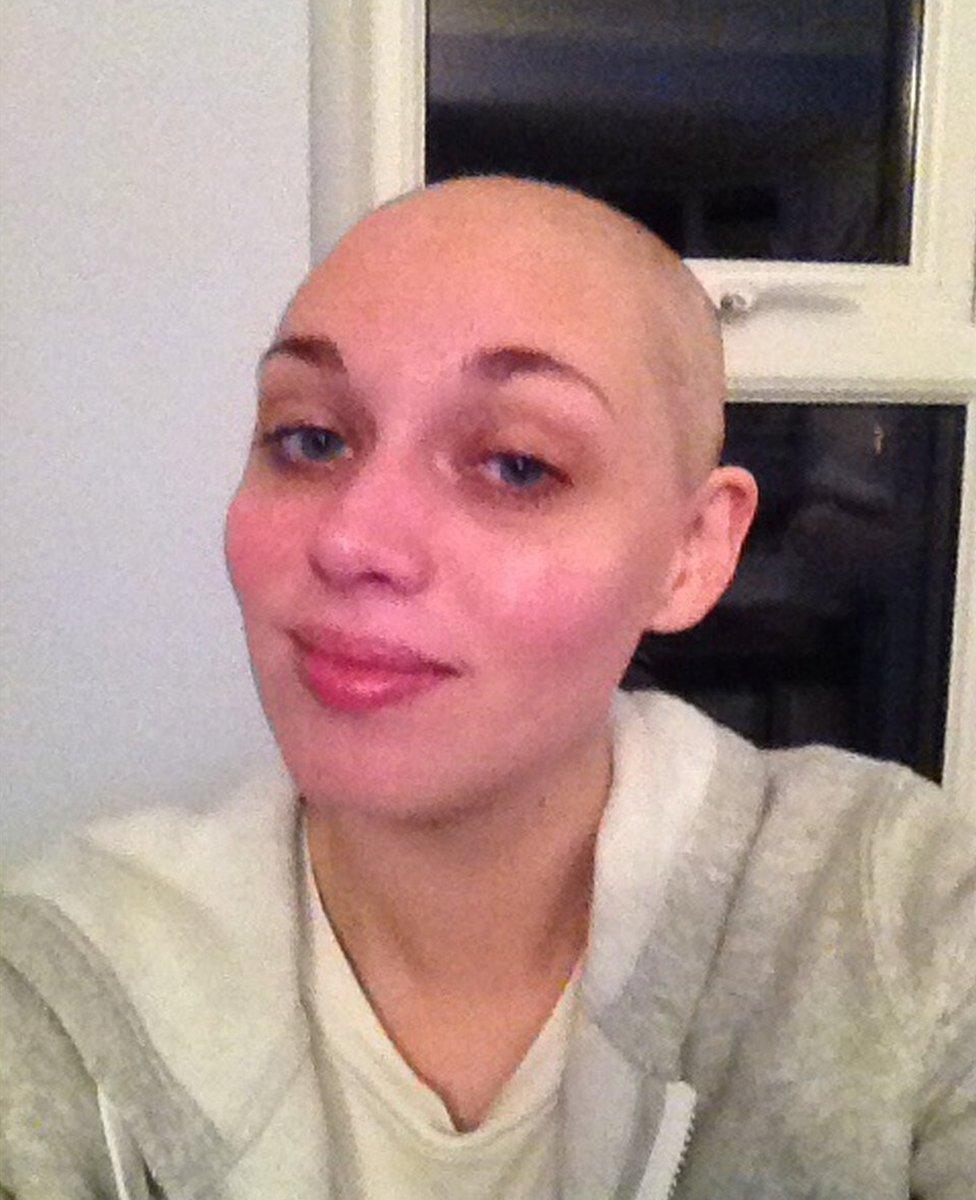
Here's her story.
"I started pulling my hair when I was 14 years old. I was a bit of a wild child and my parents were going through a really tough divorce.
"I found all of it really difficult to cope with and I started pulling my hair out.
"A lot of it was about trying to find the right root and the right hair. But also a lot of it was gaining control over my emotions and how I felt.
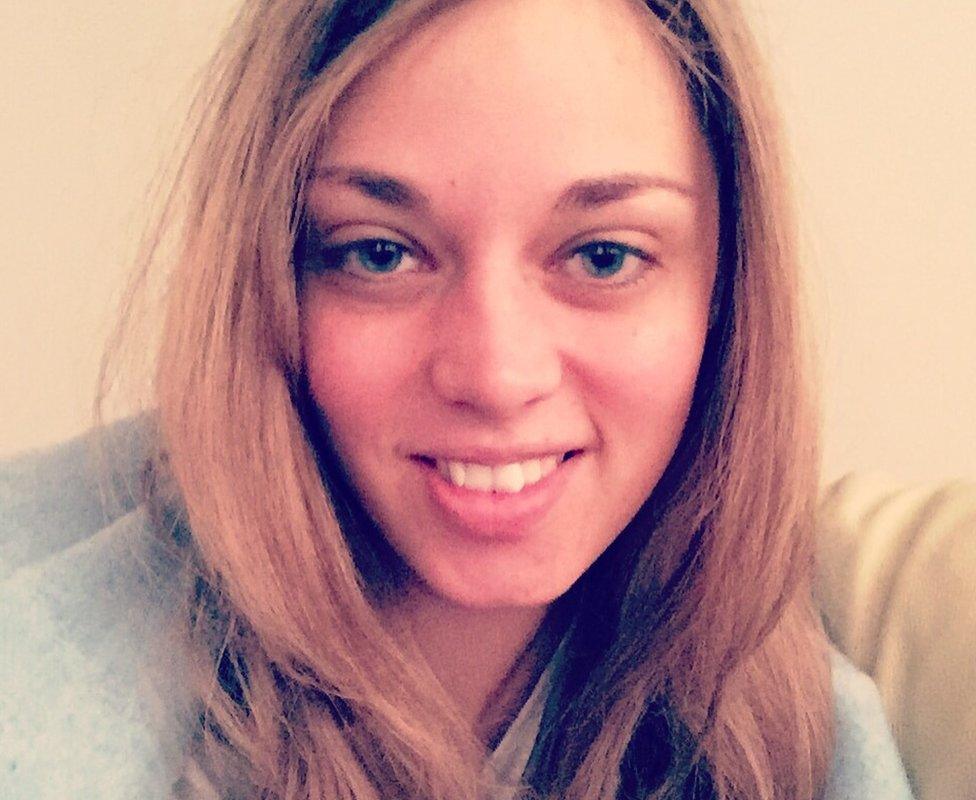
Ruth works for the NHS in Melton Mowbray in Leicestershire
"When pulling my hair I felt safe and it was the only thing that made me felt better.
"But it started to go really bad and before I knew it I had huge patches that I couldn't cover with extensions and I became sad and depressed.
"I sought help from my doctors and they put me on medication.
"I found stopping pulling really difficult. Sometimes it feels like you're going to explode with this urge that builds up inside of you and the only way to stop that is to pull your hair out.
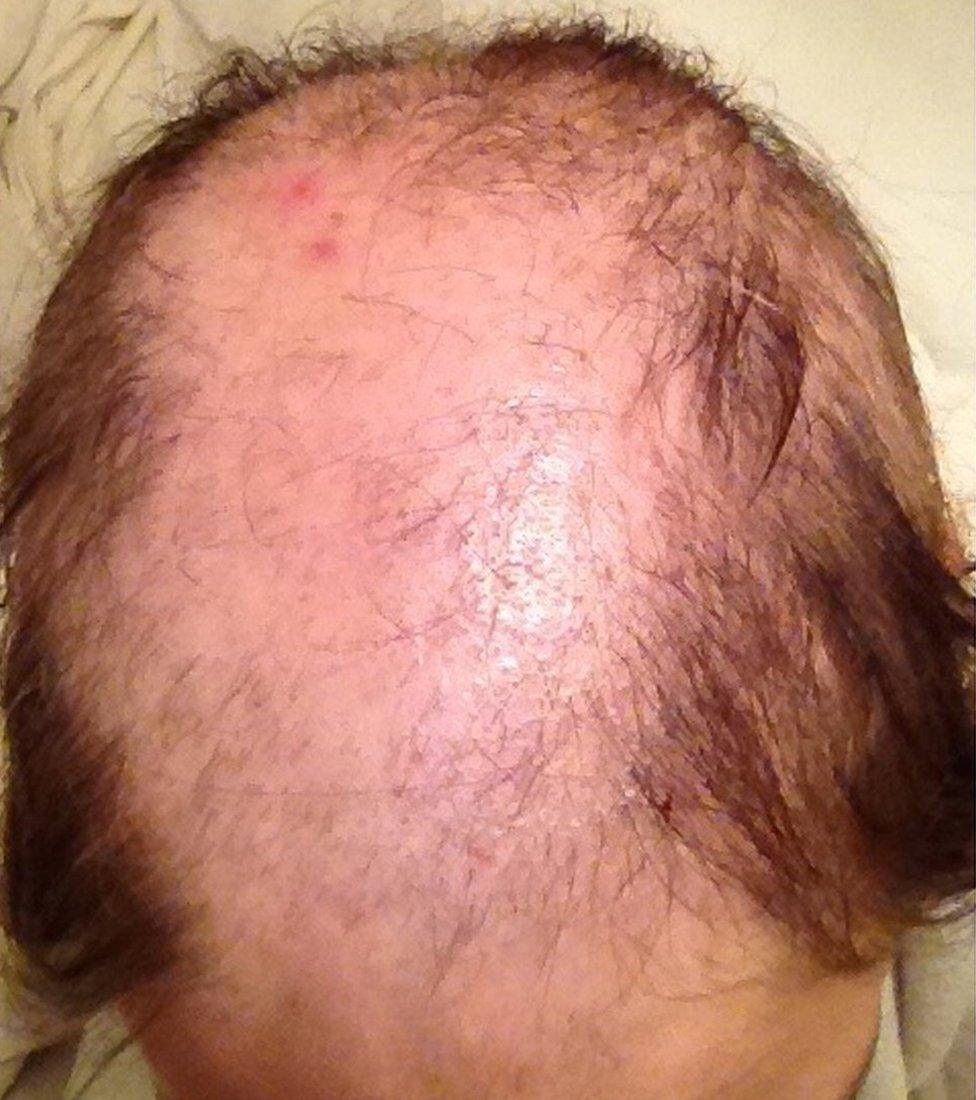
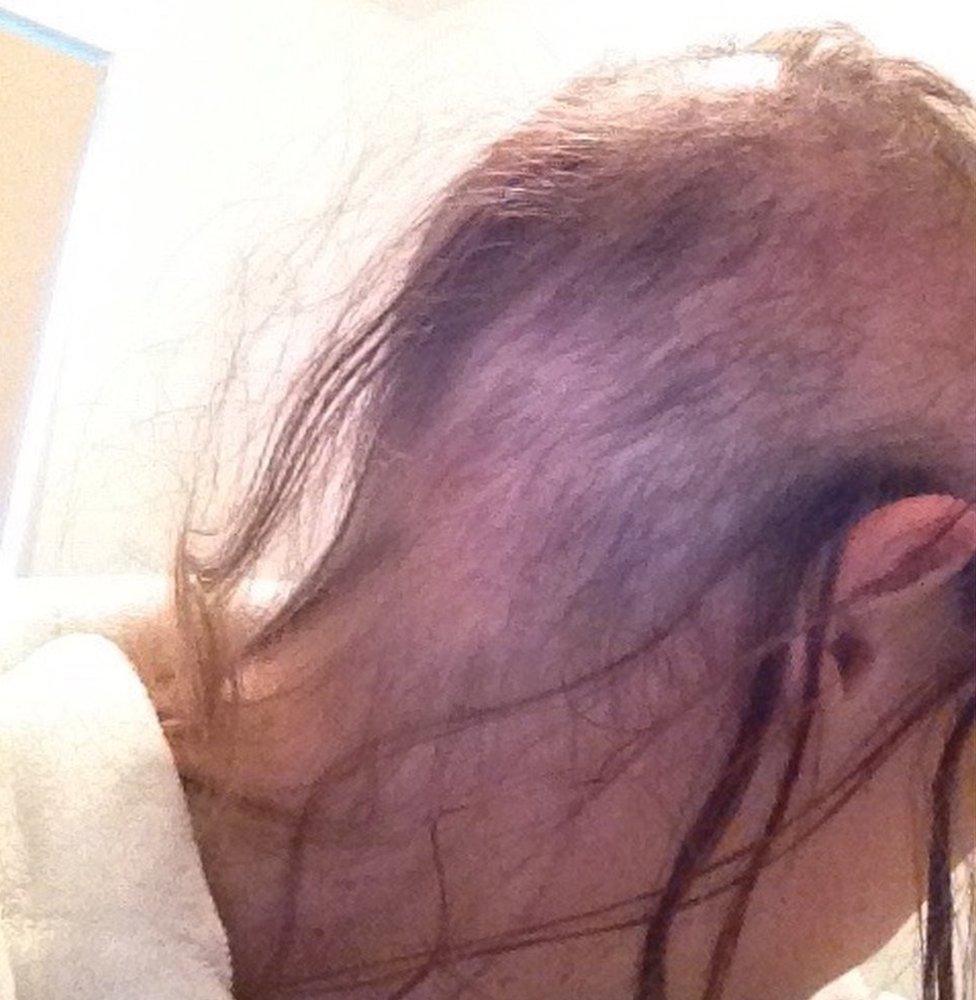
"Sometimes my hand goes to my head without me even realising and I've been pulling for hours. I can't stop until I've found that right hair and that's why other people should get help with TTM.
"It controls your life, it takes how you are and that's not fair."
The NHS says numbers are hard to pin down because what's recorded are hospital admissions, which are small.
But the campaign group who are behind No Pulling week think more than 800,000 people across the UK are affected.
The majority are women and it often starts in people's teens.
Of the small numbers who go for help, only 10% are thought to get treatment for the condition.
The treatments can involve something called talking therapy such as cognitive behavioural therapy (CBT) to help you reduce the amount of pulling.
Visit NHS Choices, external for more advice on dealing with Trichotillomania or visit BBC Advice for where to find help if you're anxious or stressed.
Follow @BBCNewsbeat, external on Twitter, BBCNewsbeat, external on Instagram, Radio1Newsbeat, external on YouTube and you can now follow BBC_Newsbeat on Snapchat